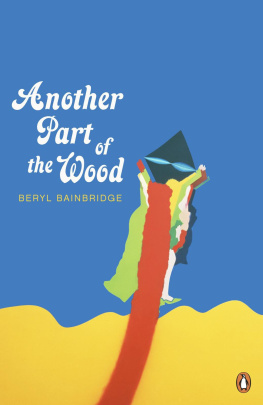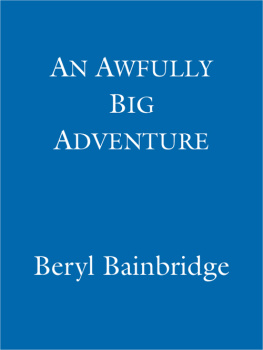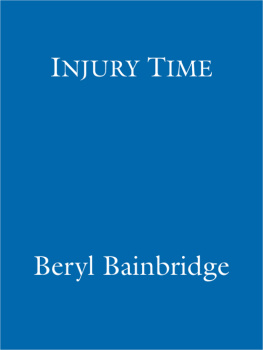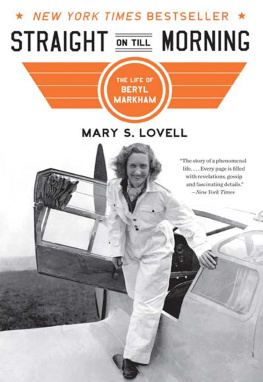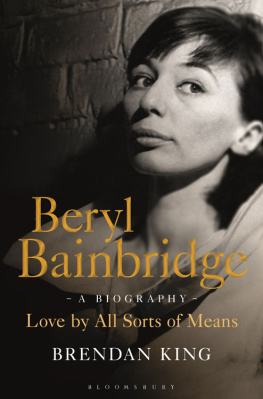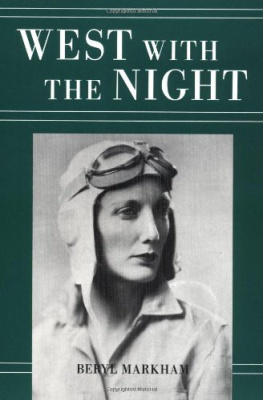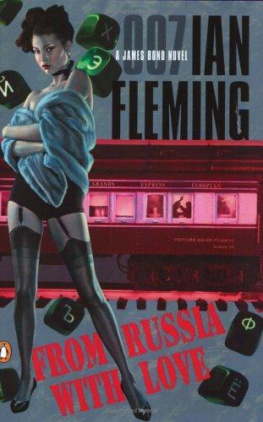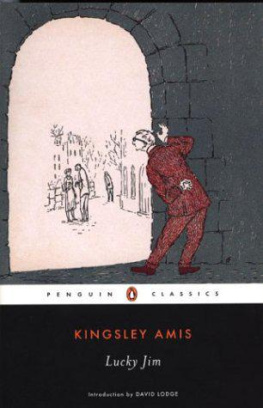PENGUIN DECADES
Another Part of the Wood
Beryl Bainbridge was born in Liverpool in 1934. Educated at Merchant Taylors School, and expelled for a minor misdemeanor,she began her working life as an actress at the Liverpool Repertory Theatre (an experience she drew on for her novel An Awfully Big Adventure), but with young children to bring up she took to writing. Her first novel, A Weekend with Claude, was published in 1967. She has written eighteen novels altogether, most recently According to Queeney, and has been shortlisted for the Booker Prize a record five times.
She was awarded a DBE in 2000, and in 2003 won the prestigious David Cohen Prize for Literature, together with the poet ThomGunn. She lives in north London.
Another Part of the Wood was the second of Beryl Bainbridges novels to be published, in 1968 publication of Harriet Said followed, though in fact it was written before Another Part of the Wood. These early novels pre-date the historical fiction for which she is now well-known, and feature many of the concerns ofthe sixties and seventies, but stylistically they share many of the characteristics of her later work.
Lynn Barber studied English at Oxford University. She began her career in journalism at Penthouse, and has since worked for a number of British newspapers and for Vanity Fair. She has won five British Press Awards. Her highly praised memoir An Education was published by Penguin in 2009, and has since become a successful film scripted by Nick Hornby.
1
Balfour, unbearably shy, was waiting for them.
He sat on the gate hunching his shoulders, squinting up into the sunlight as the open car came round the corner and went toofast over the bridge. He watched the cars approach with a fixed smile too wide, too foolish listening with eyelids flutteringto the optimistic voice of P. J. Proby loud above the noise of the engine.
George MacFarley had told him to meet the visitors. You meet them and Ill make tea, he had promised. Right you are, Balfourhad agreed, and half ran, half walked, down the track to the entrance of the woods, leaving George towering outside the doorof the Big House, his scarf wound about his throat, his melancholy eyes regarding the forest below him. The Big House wasmerely one large room with a kitchen built on at the back and a bedroom at the side. Nailed to that was another room, verysmall, furnished with two bunk beds and a hanging lamp. This was Georges bedroom, where he kept his drawing board, his set-square,some hammers, an axe and two spades. His saw, always greased after use, hung in a sack behind the door. Pinned to the woodenwall beside the bunks was a plan of the woods which George had drawn showing the positioning of the huts and the various speciesof trees. In the bottom corner were printed the words Plan of Nant MacFarley Camp and then, modestly small, George DavidMacFarley, Flintshire. The name Nant MacFarley Camp wasnt always used. Georges mother referred to the estate as the FamilyResting Ground, the haven to which they could retreat when the demands of city life became overwhelming. Most weekends Balfouraccompanied the MacFarleys to the Resting Ground returning to his factory bench on a Monday morning in a state of exhaustion. When there werent any dead trees to be felled and sawn into logs, there were living ones to be inspected andnew ones to be planted. There was drainage to improve and space to be cleared, chemicals to be dug into the soil and fungito be torn out, paths to be laid, steps to be cut, hinges to be oiled, window frames to be examined for warping. A porch wasplanned for the entrance of the Big House. Another shed would be erected on the other side of the stream to hold the increasingstores: fluorides and chlorine, acids and caustics, sulphur dioxide, cyanide, methyl alcohol, strychnine, carbon bisulphide,paraffin, Calor gas, petroleum, turpentine the list was as endless as the work to be done. Under the pampered trees andthe curving sky the MacFarleys toiled without ceasing. Balfour called it the Labour Camp. Nevertheless he had arranged tospend his summer holiday, his fourteen days away from the factory, at the Camp. Mr and Mrs MacFarley wouldnt be there; theyhad gone abroad. But Balfour had discovered on arrival that he wasnt going to be alone with George. George had invited friends a man with a beard called Joseph and somebody named Kidney. What was worse, Joseph had apparently taken it upon himselfto ask two other people to stay people whom George had never met. George said that very possibly Joseph would also bringa woman. He usually did. Balfour could tell that George was none too pleased about the arrangements, though he didnt saymuch. George never said much.
The car, radio blaring, stopped. Seated beside Joseph was a fair-haired girl, between them a child in a pom-pom hat and inthe back a youth with a rosy face. Raindrops slid off the dark blue bonnet, and P. J. Proby still shouted up into the trees,long after the engine had stopped, that somewhere there was a place for them.
Joseph got out of the car and went easily over the mud, thrusting his hand forward and saying You must be Balfour. How arethings? Hows George? Everything under control?
The child in the car clambered over the edge of the door. He said petulantly, Can I have the kite now, Daddy? and withoutwaiting for an answer began to tug at the handle of the boot.
Joseph, stretching his arms high, said, Wait a moment, Roland, just wait a moment. Dreadful journey. He lowered his outflungarms and looked at Balfour, still hunched on the gate. I picked up Roland in Liverpool, you know, but Ive come all the wayfrom London. Bloody cold, bloody awful journey.
George is making tea, said Balfour, clearing his throat, too shy to look at the girl. He thought you could do with a cuppa.
Joseph noticed his bad complexion and felt sorry for him. He extracted a kite from the boot. The string was red knitting-woolbound round and round a piece of cardboard. Theres no wind, Roland, he said. Leave it until theres a wind.
The other passenger had remained where he was in the car. He sat stiffly and stared at the windscreen. We had a bad journey,he said, speaking to no one. We had a bad journey. Looking up, he saw Balfour on the gate and blushed.
This is Kidney. Joseph motioned with his hand at the youth in the car.
The child dropped his scarlet wool into the mud and broke out crying. Balfour got down from his perch and lifted the stringfrom the path.
Joseph was moving luggage from the back of the car some cases, a wicker basket, a long red and black cardboard box. Hadto bring this. Dotty cant live without her Monopoly, he said.
Cleaning the kite wool, Balfour nodded, expressing sympathy, he hoped, giving the blonde girl a quick glance. But she waslooking at Joseph, with eyes narrowed, and he bent his head again.
Come on, Kidney. Joseph addressed the figure in the car severely. Stir yourself, boy.
Stirred, Kidney opened the door of the Jaguar and stepped down. He looked at the ground and shifted his feet. It was a badjourney, he repeated, face flushed and manner intent. Round and contoured like a girl, buttocks vast in his corduroy trousers,he waved fat hands in the summer air. Silently he removed things from the seats of the car.
When the car was finally unpacked, they went in single file through the gate, keeping to the path that climbed upwards throughthe trees. To the right the pines rose to the edge of an unseen field. To the left the ground fell away to the stream in thevalley below, hidden among the black poplars and the beech trees. The air hummed with gnats. Mrs MacFarley called the valleythe Glen. She called the light at early evening the gloaming. She liked to go Roaming in the Gloaming in the Glen.

